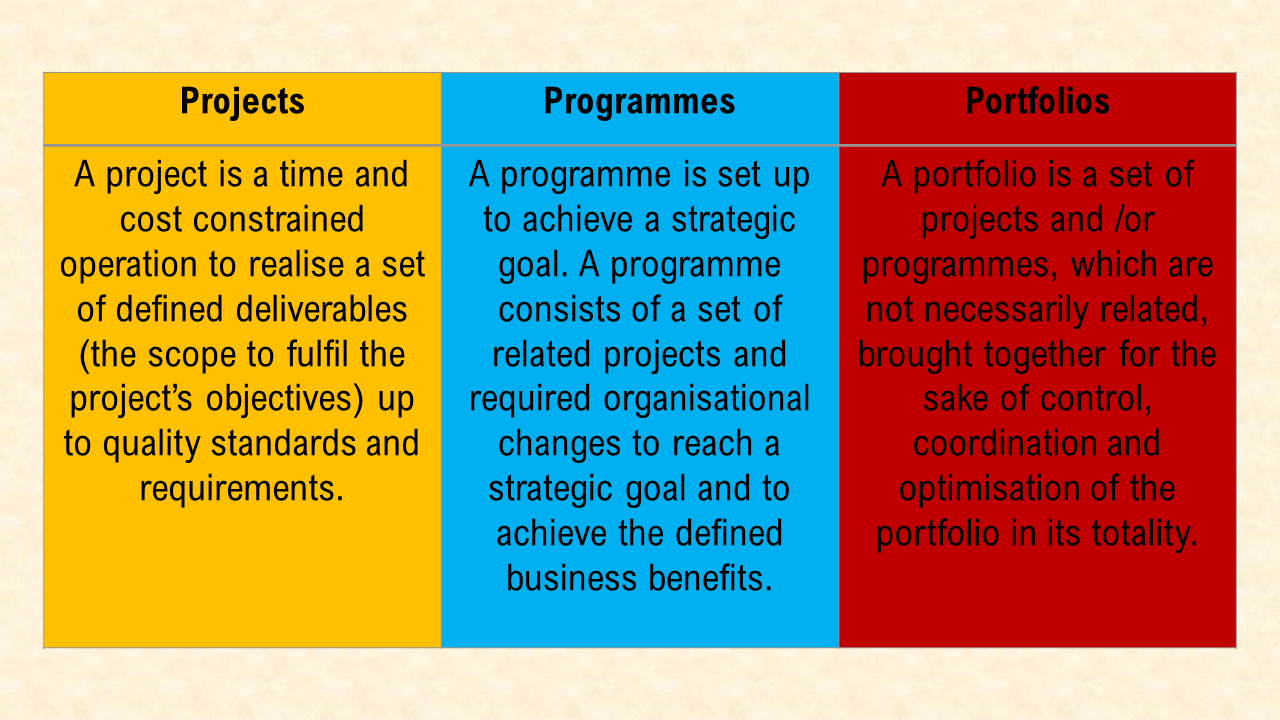To be professional, the discipline of Project Management has to have rigorous standards and guidelines to define the work of project management personnel. These requirements are defined by collecting, processing and standardising the accepted and applied competence in project management.
Project quality is defined as fulfilling the requirements agreed for the project. Project management quality is defined as fulfilling the requirements agreed for the management of the project. The optimum situation for a project organisation is that all the people, the project teams and resource providers involved in project management are competent to carry out their work and to take individual responsibility.
The goal of a project is to produce the deliverables defined in the business case. Strategic considerations as well as the benefits for the organisation are transferred to the business case. Therefore, strategy itself isn’t an issue for the project manager. If the project does support the business unit strategy, it may get a higher priority in relation to other projects, which makes life easier for the project manager, but the project still has to deliver according to the business case. The project manager is not responsible for achieving the business benefits of the project, which accrue to and are largely realised by the organisation once the project is delivered.
In most organisations the project owner is held accountable for realisation of the benefits. The project is often not about changing the organisation; it may however, include educating people to fulfil their roles in a different way. If the project concerns organisational change, then the change to be implemented as an outcome of the project is managed by line management, not by the project team. Where the deliverables are well defined and specified at the outset and the organisation doesn’t change these too much during the course of the project, then the delivery of the project to the required time-frame and costs are usually manageable.
